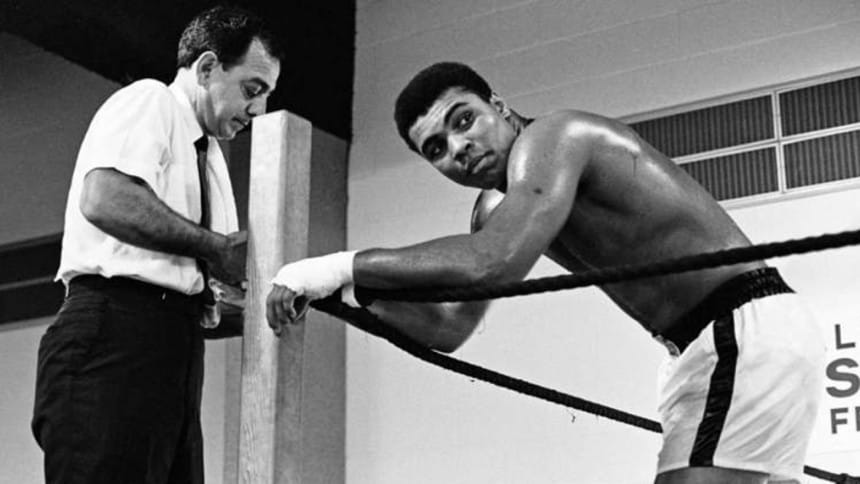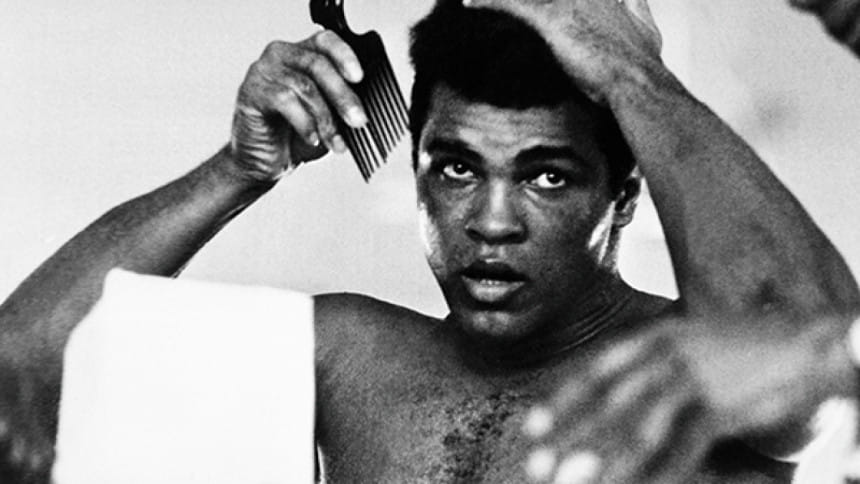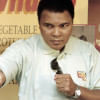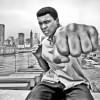Boxing great Muhammad Ali: 7 stories behind the man

Muhammad Ali, who died on Saturday June 4 (Friday night US time) at 74, is considered the greatest heavyweight boxer of all time.
He also had a penchant for showmanship and a larger-than-life personality which took his reputation far beyond the boxing ring.
The Straits Times relives seven stories about The Greatest.
1. BICYCLE THIEF STARTED HIM BOXING
Muhammad Ali was born Cassius Clay in Louisville, Kentucky. When he was 12, a bicycle his father gave him was stolen, and the angry boy told a police officer that he wanted to "whup" the bicycle thief.
"You better learn to fight before you start fighting," was the officer's advice to Ali.
That police officer was Joe Martin, an amateur boxing coach who launched Ali's career.
His bicycle was never recovered, but Ali probably didn't mind.
2. SCARED OF FLYING
The three-time heavyweight world champion wanted to back out of competing in the 1960 Rome Olympics after he realised that he would have to fly there.
Coach Martin managed to talk him into it, and he went on to win the light heavyweight gold medal.
Reports say Ali bought a parachute and wore it throughout the flight.
3. THROWING AWAY HIS GOLD MEDAL

Ali started an urban myth that he threw his 1960 Olympic gold medal into a river in his 1975 autobiography, The Greatest: My Own Story.
The story goes that after he won the gold medal and returned home, he and his brother were barred from a restaurant because they were black.
Frustrated that he was still treated as a second-class citizen in his own country, he threw his medal away, Ali claimed.
He later admitted that he simply lost the medal. (He was given a replacement medal at the 1996 Atlanta games.)
4. SAY MY NAME
Ali changed his name from Cassius Clay to Muhammad Ali in 1964 but many, including the press, refused to use it at the time.
His talent was undisputed but all his other actions courted controversy - converting to Islam, being an outspoken advocate for civil rights, and refusing to serve when drafted for the Vietnam War. Prior to a fight between Ali and opponent Ernie Terrell in 1967, Terrell kept calling Ali "Clay" to rile him up.
It worked too well. Terrell was brutally beaten as Ali shouted "What's my name?" at every round.
5. INSPIRED ROCKY
One of his fights, with boxer Chuck Wepner, reportedly inspired Sylvester Stallone to create the acclaimed film, Rocky.
Ali has dabbled in showbiz himself. He recorded a spoken word album in 1963, and starred in a short-lived Broadway musical "Buck White", and has appeared in movies and TV shows. A biopic, Ali, was made about him in 2001.
6. HUMANITARIAN
In 1991, Ali volunteered to fly to Iraq to negotiate the release of American hostages held by dictator Saddam Hussein.
He was suffering from Parkinson's and could not speak clearly, but went to meeting after meeting, visited schools and prayed in mosques.
After a week, he ran out of Parkinson's medication, but refused to return home without securing the release of the hostages.
Saddam finally met him, and released the 15 Americans being held.
7. FLOAT LIKE A BUTTERFLY, STING LIKE A BEE
Ali was as good as at talking up his game as he was at boxing. He declared himself "The Greatest", a nickname that has stuck with him his whole life.
His most famous quote, "Float like a butterfly, sting like a bee", was delivered in 1964, before he won his first belt from Sonny Liston.
His boast was well-deserved as Ali had a unique style for a boxer of his size. He was quick and danced around his opponents, jabbing at them from unexpected angles.
His win over Liston was considered a huge upset at the time, propelling the 22-year-old to global fame. He was then the youngest contender ever to win the heavyweight title.
That record was later beaten by Mike Tyson, who won it at age 20.
Courtesy: The Straits Times/ ANN

 For all latest news, follow The Daily Star's Google News channel.
For all latest news, follow The Daily Star's Google News channel. 








Comments